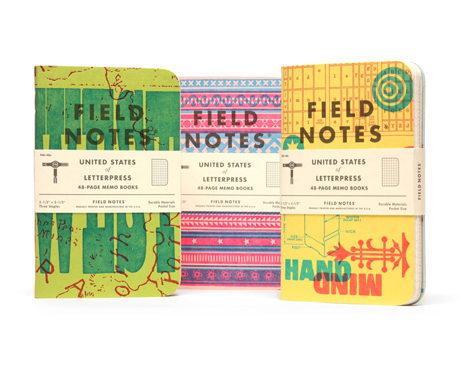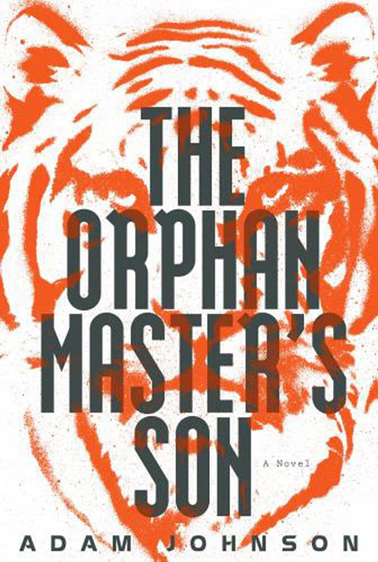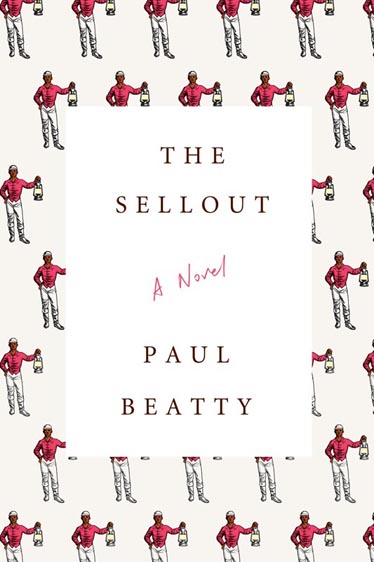-
Oct. 22, 2020
Quarterfinals
-
Adam Johnson
The Orphan Master’s Son
v.
The SelloutPaul Beatty
-
Judged by
Choire Sicha
The federal government could quantitatively ease some reparations to every Black homeowner in America with the press of a white candy-coated button somewhere four steel-clad basements down under Constitution Ave. A frosty whirring rack of computers at the IRS could cough up checks in the amount of $123,000 for each member of America’s Black households of renters, many of them members of families who have been excluded from owning property for generations. Next we can simply reparate some homes to those without those, like Jimmy Carter would want.
Stolen America can afford it, and, after all, not only did we not make that money ourselves, the money is so taffy-teased and twisted that it isn’t even real. It’s just a collective hallucination of repackaged student loan debt and steel briefcases of digital static chits passing through the tesseract of the discount window. If you robbed a bank right now you’d be robbing air. (Sweetie, no, don’t do it.)
A vast transfer of this frothy digital wealth wouldn’t barely make a dent in the 10x difference between the median white and Black household net worth. And, speaking of fake currencies, we could digitally redistribute 100 of those made-up Equifax points from every white person in the United States too, and it would barely start to matter.
The Sellout was published in 2015, less than a year after ”The Case for Reparations” and four years before ”The 1619 Project.” In that short yet truly exhausting stretch of time, AM I RIGHT, the idea of the actuality of reparations has moved from “old white men with cigars slapping their knees with laughter in a mansion” levels to “maybe even a plank in the 2024 Democratic platform after Trump’s second term.”
Support for reparations among white people may have—these kinds of polls are wacky and questionable—doubled or even tripled in the last year alone. Still, the majority of white people don’t want to part with a lone crisp dollar, even though it’s not their money, or their land, while we’re on the topic of theft! But if I can be of assistance, just remember the handy slogan: “Reparations! It’s not even my money anyway.”
With this slow, sullen movement in national opinion, coupled with (very, very generally speaking) a youth movement toward being kinder and more careful with people, The Sellout in all its sweary intensity has only grown in ferocity and daring and goofiness.
Popularly billed as a satire, it’s really just a comedy about a young man raised as a sociology experiment that’s then been packed inside a love letter to California. Jammed with more “racist jokes” (are they either?) than any given wedding in Oregon, our narrator realizes that a complacency has taken over Black people and white people and Los Angeleno Latinos alike here at this halfway (just guessing, who knows) stage of the story of race in America. The book argues that an end to the era of lynchings (ish) and a Black president (how’d that go) served to show everyone just how far we had yet to go, and so, to give people back their passion and anger, he reinstalls segregation. He starts, big yikes, with the buses, putting whites-only seating back at the front. It works! Passion, meaning, adversity, clarity return to the lives of Black, and white, Los Angeles.
It’s often a cold spine-shuddery déjà vu kind of moment when you see a novel starting to peek out through the fabric of reality. (Margaret Atwood fans know.) There is, for instance, current presidential candidate Kanye West, whose recent scripts could have been stolen from The Sellout. “Let me tell you who’s the most racist, the liberal racist,” he told the New York Times. And, in July, in a remark so outrageous that any elements of the social criticism in it couldn’t even be addressed, West said, “Well, Harriet Tubman never actually freed the slaves—she just had them work for other white people.” There are many good reasons why this Klassic Kanye line did not succeed at conveying what he presumably intended to convey, not least because Tubman is one of the most remarkable heroic and harrowing figures in at least American if not human history. (Her Wikipedia page alone will bring any reasonable person to tears.)
Mostly it’s just that Kanye’s comic timing is really terrible.
You can get away with a lot if you’re actually funny. The Sellout truly is, and it’s not because Paul Beatty’s so furious, or because he’s out for revenge, it’s really because there’s love and at least a tiny bit of good will toward most thrumming beneath the hood (as it were!!!). He’s thinking about us all: “But if you really think about it, the only thing you absolutely never see in car commercials isn’t Jewish people, homosexuals, or urban Negroes, it’s traffic.”
The Orphan Master’s Son, from 2012, is a beautiful state of sustained dreamlike terror in North Korea punctuated by some lovely sea voyages and airplane trips. I wish that I had not read it.
It feels cruel in some way to imagine the most realistic of terrors. In this North Korea, everyone is a character in a story told by the state (a cousin of the condition of lack of power, safety, and dignity that marks the American state’s relation to Black Americans).
The hero of our book becomes a seafarer who plucks people from the coast of Japan and abducts them back to North Korea, a terrible, real thing. Botulism also figures in the book, prefiguring the claim that the North Korean government made regarding the death of Otto Warmbier, the US student who was detained in 2015 and returned, comatose, in 2017.
It’s better to tell the stories of the nightmares, the book suggests, even as the body count quite painfully piles up around the book’s hero, and in the middle of the book, the story rolls its own narrative up like a last cigarette, leaving the reader rather sad and alone, all because the book said so, if that makes sense.
That’s the point of the book too: that North Korea is an ongoing manifestation of truths by assertion.
If you’re a white or white-adjacent person looking for a book to read, make it The Sellout. It’s one more piece of culture for us to “borrow,” and it’ll be good for you. “A few years ago, before the Internet, before the hip-hop, the spoken-word poetry, the Kara Walker silhouettes,” is how the narrator describes the time when American consumption habits would avoid or at least shun some of black culture. “The black experience used to come with lots of bullshit, but at least there was some fucking privacy.” Yup, not satire, because it’s not really all that exaggerated, is it Kanye.
“If a man and his story are in conflict, it is the man who must change,” Michiko Kakutani noted a character says in The Orphan Master’s Son. Though that character goes on: “But in America, people’s stories change all the time. In America, it is the man who matters.” The Sellout is the story of a man trying to make an impact on the state. But The Orphan Master’s Son is the story of the endless callous awful maze of the state itself.
Match Commentary
By Kevin Guilfoile & John Warner
Kevin Guilfoile: If you’ve watched a lot of Top Chef during quarantine, as I have, you can pretty reliably guess who is going to win and who is going to be eliminated by the way the show is edited. They apply the same kinds of misdirection in every episode and you can almost make accurate predictions with the sound turned off. Likewise, on The Great British Baking Show, the baker being eliminated is never the last face shown before the announcement. (When the bars fully open again, you can find one that shows exclusively food programming and hustle a lot of cash bets with these tips.)
Choire Sicha is not Paul Hollywood, but I didn’t see that verdict coming.
John Warner: Judge Sicha has a history of memorable Tournament of Books judgments and this one is no exception. Judge Sicha’s observation that The Sellout is not a satire but a straight comedy is particularly penetrating. Satire relies on exaggeration, and the speed with which reality outstrips the ability to exaggerate it is depressing. It would be entirely unsurprising to see Donald Trump on television brandishing a drawing akin to what you produced as a joke about George W. Bush’s defense budget in our My First Presidentiary book from 2001. The only difference would be Trump would render it in Sharpie, rather than colored pencil.
Nineteen years ago, in our book My First Presidentiary, where @biblioracle and I predicted the Space Force. pic.twitter.com/hFYHJs7Rdt
— Kevin Guilfoile (@kevinguilfoile) October 12, 2020
It’s tough to see The Sellout leave, but this is what happens when champions battle.
Kevin: We started the Tournament of Books, in part, to demonstrate the pointlessness of literary awards, even while admitting that we are a little bit obsessed with them. And John, you know I don’t read as much poetry as you do. I like poetry, and I even occasionally write unserious rhymes, but I am not well-versed, you might say.
The Nobel Prize for Literature has been awarded this year to Louise Glück, the latest in a long line of indisputably white people who have won that award. Don’t misunderstand me. Louise Glück is a phenomenal writer. I’m actually familiar with some of her work and I find it powerful. She deserves the Nobel and she should enjoy it guilt-free. But lots of writers are deserving of the Nobel Prize, and the angst and desires of white people are primarily expressed everywhere—in novels and TV shows and movies and politics and popular music—and having them illuminated in verse by Yale professors has to be literature’s least-urgent mandate. Pre-pandemic, I’m pretty sure if you looked at any poetry scene in the United States, the most exciting voices were not white ones.
This comes just a few years after the committee gave the prize to Bob Dylan. Again, I’m a fan of Bob Dylan. Bob Dylan is a genius. What objective was served by giving him the Nobel? How is that even interesting? No new consumers of music or poetry (in the English-speaking world, anyway) were exposed to his work as a result. Were they trying to tell us that songs are poetry? That’s a very important point for your hippie eighth-grade English teacher to make.
 Field Notes® Limited Edition for the Fall of 2020 is the “United States of Letterpress,” which features the work of nine independent letterpress shops from across America. This series demonstrates a wide array of craftsmanship, ingenuity, and love for the age-old and tactile process of letterpress printing. Check the the short documentary film too.
Field Notes® Limited Edition for the Fall of 2020 is the “United States of Letterpress,” which features the work of nine independent letterpress shops from across America. This series demonstrates a wide array of craftsmanship, ingenuity, and love for the age-old and tactile process of letterpress printing. Check the the short documentary film too.Yes, the Nobel Prize honors lifetime contributions, but the entire award-giving process is self-perpetuating, designed to celebrate the same kind of work, year after year, over and again. The role models for today’s young writers shouldn’t look and sound like the ones from 40 years ago. Here’s an idea: The next time the Nobel Committee is considering giving the prize to a poet, they should call me and ask if I’ve heard of them. If I have, they should give it to somebody else.
John: That we still care about which books win major prizes, or which writers win the Nobel, suggests that the work of an annual exercise in demonstrating how arbitrary and ultimately meaningless it is to single out a book or artist in the universe and elevate them to such exclusive heights—suggests we still have some mountains to climb with this annual exercise.
Kevin: The Orphan Master’s Son reads like a fantasy about life under authoritarianism, like a dystopian melodrama filmed through a vaseline-coated lens. Reading it after four years of Trump, you feel like the constructed reality of the DPRK is a blueprint for the Trump administration, which often seems to want to build a reality, at least for its fervent base, out of its piles of lies.
John: As big a fan as I am of The Sellout, I am excited to see The Orphan Master’s Son move on because, as I probably mentioned back in its original appearance, Adam Johnson and I go way back, as he was a year ahead of me in the MFA program at McNeese St. University in the prior millennium.
I won’t say I remember consciously thinking that Adam would someday win a major literary award (or two), but even then, in addition to his obvious talent, you could sense that he approached the whole enterprise with a level of dedication that most of us (speaking for myself) cannot achieve. I can’t remember how long it took him to write The Orphan Master’s Son, eight or nine years as I recall, but I know that it absorbed much of his waking life during those years, with no promise that it would win the Pulitzer, or, more importantly, the Rooster.
The other great thing about Adam at the time was he drove a big truck and would say yes if you asked him for both the truck and himself to help move your desk and bed out of temporary storage at the start of the semester.
Kevin: Tomorrow, two Rooster champs of recent vintage square off as Normal People takes on The Underground Railroad with liternet OG Jessa Crispin swinging the gavel.
New Super Rooster merch is now available at the TMN Store. As a reminder, Sustaining Members receive 50 percent off everything in our store. To find out why we’re asking for your support and how you can become a Sustaining Member, please visit our Membership page. Thank you.
Welcome to the Commentariat
Population: You
To keep our comments section as inclusive as possible for the book-loving public, please follow the guidelines below. We reserve the right to delete inappropriate or abusive comments, such as ad hominem attacks. We ban users who repeatedly post inappropriate comments.
- Criticize ideas, not people. Divisiveness can be a result of debates over things we truly care about; err on the side of being generous. Let’s talk and debate and gnash our book-chewing teeth with love and respect for the Rooster community, judges, authors, commentators, and commenters alike.
- If you’re uninterested in a line of discussion from an individual user, you can privately block them within Disqus to hide their comments (though they’ll still see your posts).
- While it’s not required, you can use the Disqus
tag to hide book details that may spoil the reading experience for others, e.g., “ Dumbledore dies .” - We all feel passionately about fiction, but “you’re an idiot if you loved/hated this book that I hated/loved” isn't an argument—it’s just rude. Take a breath.




